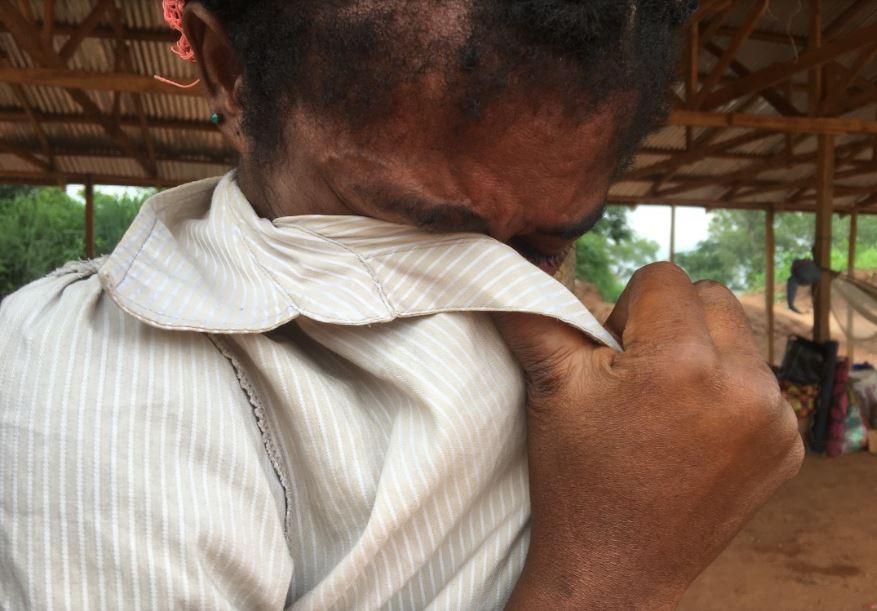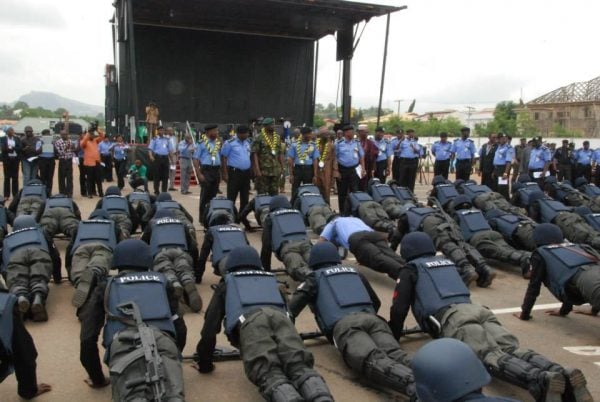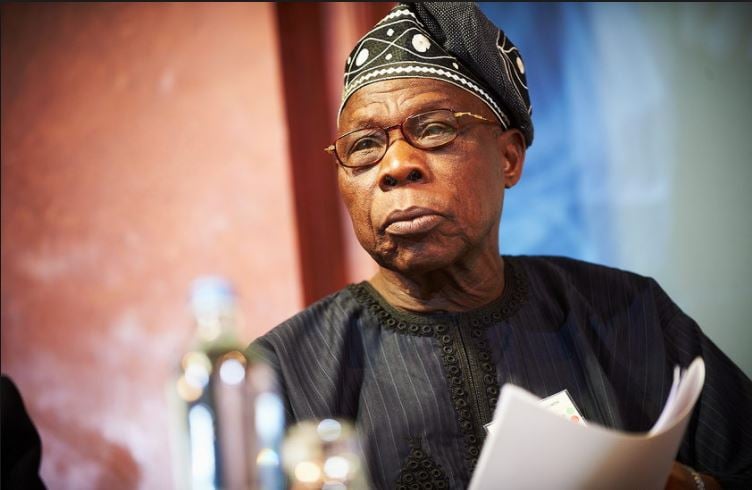Florence Ishaka arrived Nigeria with four children after she managed to escape the violence in Southern Cameroon. She has been in Nigeria since May. Alongside her children, she settled at Adagom camp, one of the structures housing refugees in Cross River state. But she has lived each day, regretting her decision to move to Nigeria.
For about two months, Ishaka and her four children — the youngest, aged three years and oldest, seven years — have been surviving on occasional aids and donations from the public. She said she had not been receiving any food or money from the camp officials because she has not been properly documented, and that all efforts to register have been fruitless.
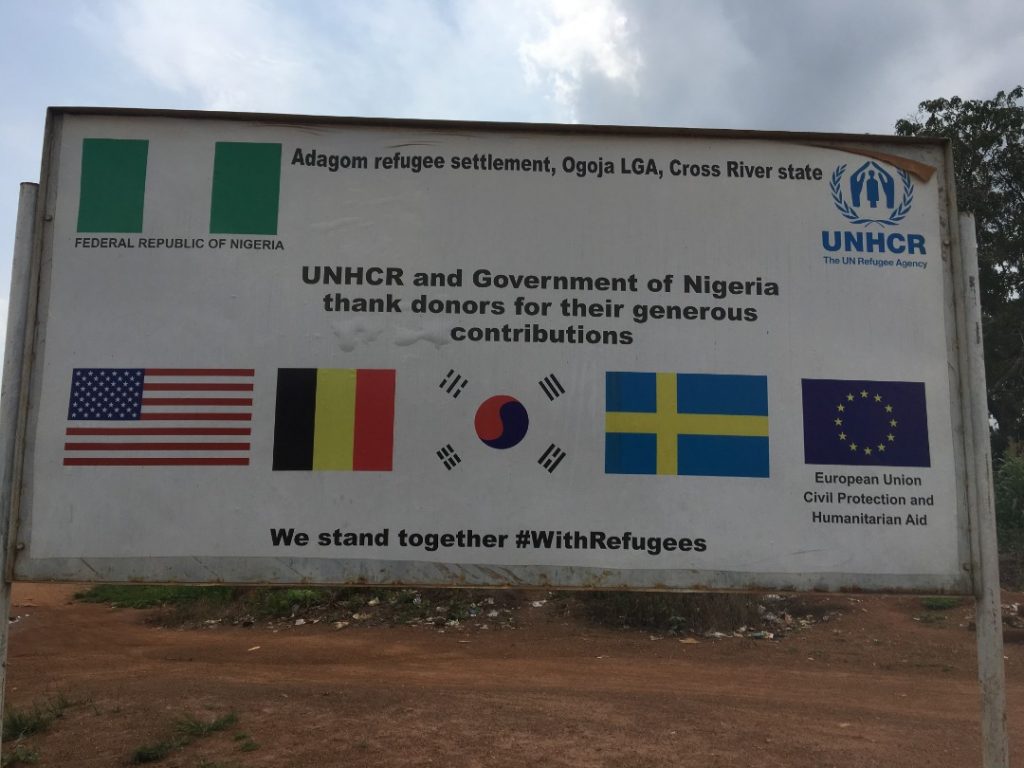
“Sometimes people dash me garri, some give me fufu. Even today, one woman brought fufu for us in the morning but the problem now is what to eat this afternoon,” she told TheCable, pausing to muffle her sobs.
“The first time I went there, I asked them to snap me but they said no. See, sometimes when I think of what I pass through here… How do I survive with my children? Even if my children get sick, they don’t get medication. What do I do?”
Advertisement
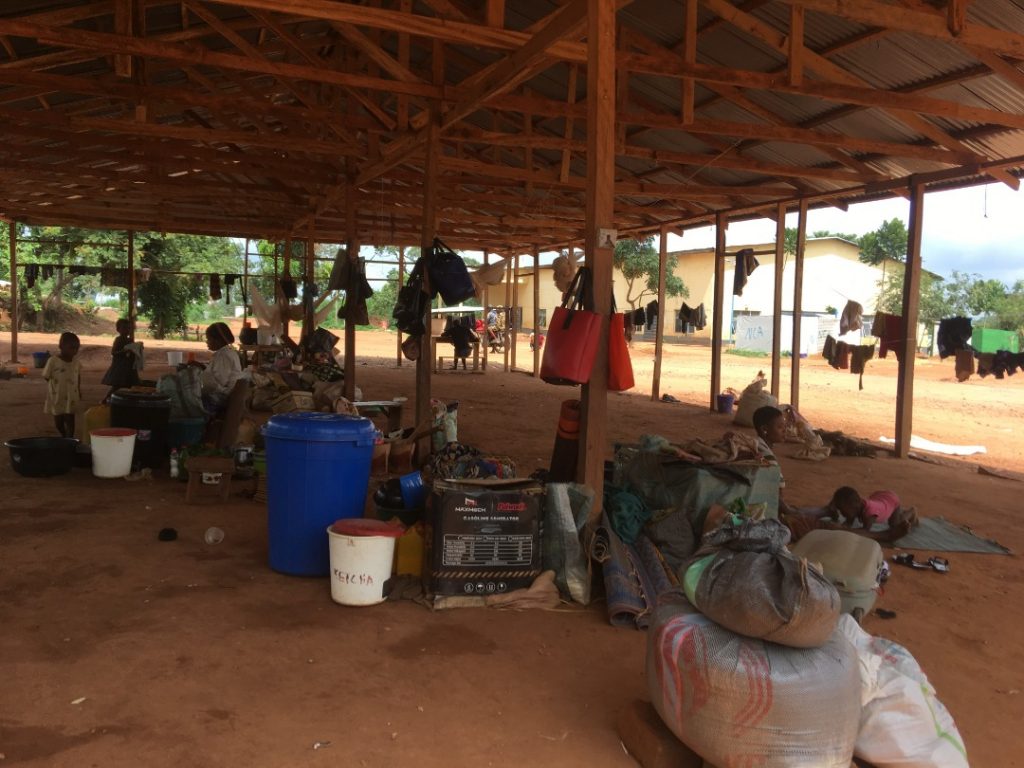
She was temporarily relieved on the night before she granted the interview. Camp officials had gone round to distribute beans and garri and she was lucky to get three kilos each. But her woes were yet to end.
“The problem is that the rice and beans don dey spoil,” she said, pointing to the direction where the beans were spread under the sun. “The thing don tey for warehouse; the garri even worse because e don pack.”
Ishaka’s condition is not different from that of many other Cameroonians seeking asylum in the refugee camps set up for them in Nigeria by the United Nations High Commissioner for Refugees (UNHCR). For close to two years that they started arriving Cross River and a few other states, the Cameroonians were given food but the arrangement changed in December when UNHCR decided to pay each of them N7,200 every month as a form of cash-based intervention (CBI) while the food is preserved for those yet to be documented.
Advertisement
Because the registration process usually takes long — sometimes more than a month — the refugees complain that they are often without food while trying to get documented, as is the case with Ishaka and her children.
Fred Ujom, a Cameroonina based in Nigeria, said his parents arrived at the camp mid-2018 and were unable to secure food from camp officials for the first three months.
“The only thing they had from UNHCR was the big hall they were staying in. How were they feeding? It was my responsibility,” said Ujom who was visibly annoyed and frustrated.
Advertisement
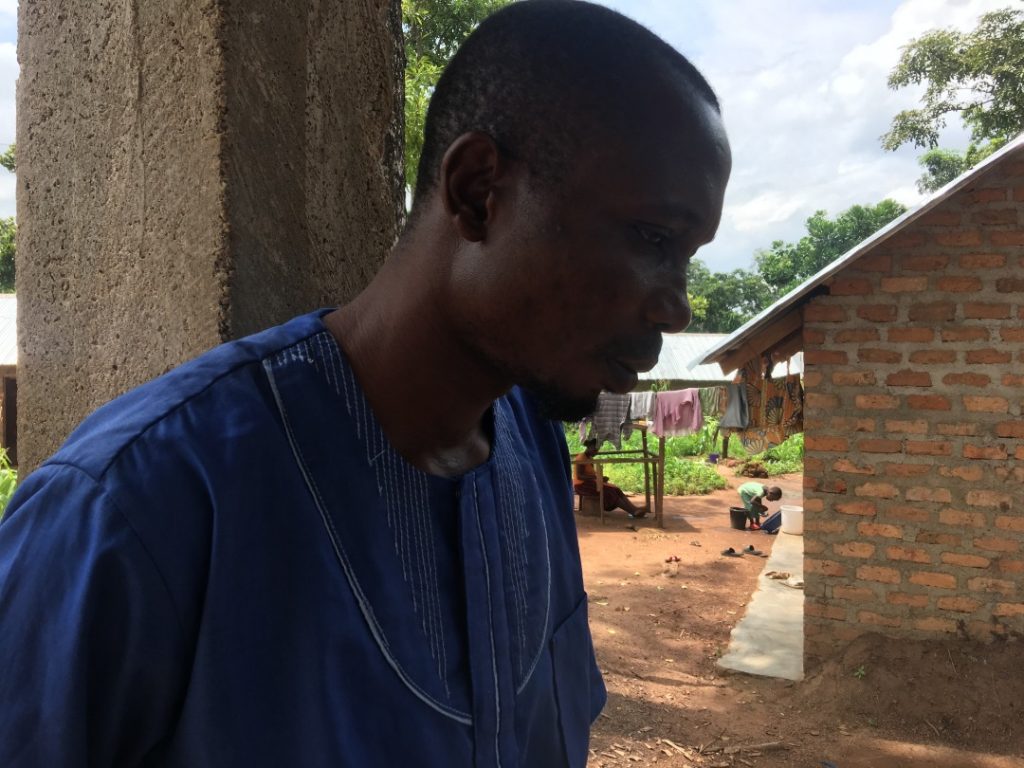
“Their feeding and everything was on me. Then what about people who did not have someone to help them? And up till today, what they sleep on is what I gave them.”
RUNNING FOR DEAR LIFE
Cameroon is a bilingual country with French and English as its official languages. However, the Anglophone region has for long alleged marginalisation by the Francophone who make up about 80 percent of the country. Their concerns reached a crescendo in 2016 when Anglophones staged massive protests to kick against the appointment of French-speaking magistrates to preside over courts and to reject the posting of French-speaking teachers in parts of the English-speaking regions.
A crackdown on the protesters led to widespread violence; at least 17 protesters were killed on one occasion while hundreds have been put behind bars.
About a year later, Anglophone separatists who want to create a new nation called Ambazonia officially declared “independence” from Cameroon. The government did not receive this well and a subsequent clampdown, this time more fierce, resulted in violent clashes between the two parties. At least 1,800 people are reported to have been killed in the crisis with 530,000 internally displaced and seeking refuge wherever they can find.
Advertisement
STARVATION AMID PLENTY
An estimated 39,602 Cameroonians are currently taking refuge in parts of Nigeria, including Cross River, Akwa-Ibom, Benue and Taraba states, but majority of them are in Cross River. Although there are two settlement camps — Adagom and Okende — in the state, only an estimated 8,000 stay in the camp while most of the others are spread across host communities.
Advertisement
Okom says her name, like many others, was missing from list of those to be paid the CBICharles Ojon, leader of Adagom camp where about 5,000 Cameroonians are seeking asylum, told TheCable that he had been solely responsible for the welfare of about 20 of the yet-to-be-documented refugees and accused camp officials of using “delay tactics” to frustrate them.
Elvis Manget, who fled Cameroon more than a year ago after losing his brother to the crisis, said some of those he arrived Nigeria with have returned to Cameroon.
Advertisement
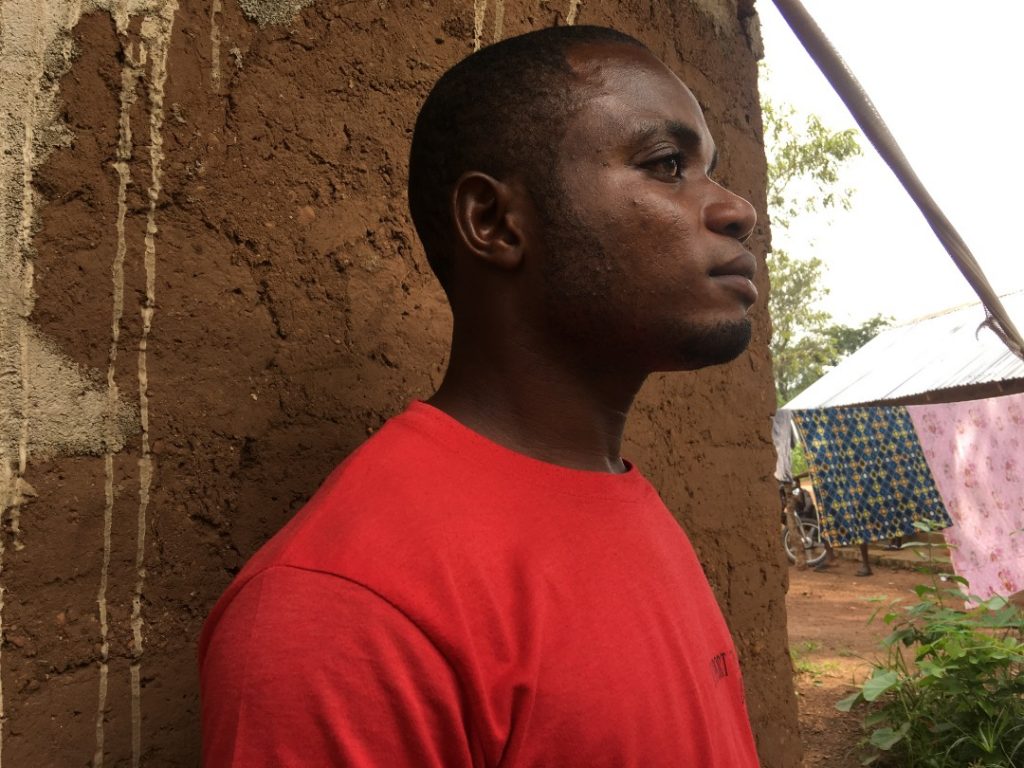
“They said it is better for them to go back and get killed by Paul Biya. Because you will be here and there is no food. You will pay your transport and arrive here to get registered and be collecting a small amount of money but sometimes it will take like one month or more before you get food,” he said.
“And there is a warehouse filled with food and even mattress meant for people but they don’t give them out. Initially, if they have not captured you, they will be giving you food and once you are fully registered, they will stop giving you food and start paying you. But now whether you are captured or not, no food. The bags of beans and even garri in the warehouse are already getting spoilt.
Advertisement
“Sometimes money will remain in the bag and they will return them to the UN. But there are people who have not gotten anything, even if N10. Sometimes more than 100 will not be paid and they will also refuse to give them food claiming those people’s names did not come out. How can you return money when some people that are registered have not gotten anything? How?”
Another challenge he and others can’t fathom is the omission of some households from the list of refugees to receive CBI every month. This would usually mean no money for such persons for that particular month, even though they had been receiving payment before.
Ojon, who is addressed as “chairman” by his fellow refugees, told TheCable that he knows at least 50 persons who did not receive stipends in June.
“I was told that my name did not appear on the system so there is no money for me. It happened after we came in December, they told us our name did not appear even though we have completed the registration,” Rose Okom, a 26-year-old Cameroonian who arrived Nigeria with barely nothing, told TheCable.
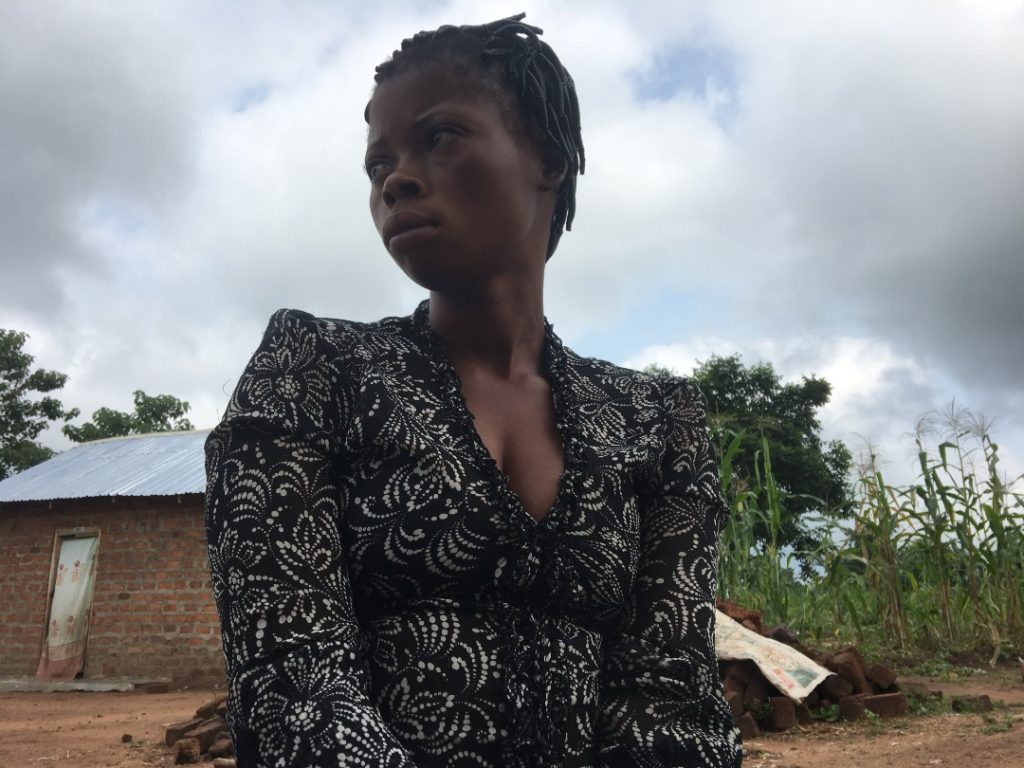
Asked how the young lady who is at Okende camp which houses about 3,000 refugees copes, she said: “My brother, how we go do? I don’t even have mats to use and sleep not to talk of blanket or bucket or pot. Some of us have not collected anything, na only that money them dey give us and we no con see this month.”
Rose’s neighbours — a family of four — did not appear on the CBI beneficiaries’ list for June as well. They were however asked to travel to Adagom to collect beans and garri which they ended up turning down.
Rose, a mother of five children, who was lucky to collect N43,000, said it is insufficient.
“The money is usually not enough and my children are sick. We go to the hospital but sometimes we have to buy other drugs outside the ones we got from the hospital,” she said.
‘I GOT PAIN RELIEF DRUGS FOR MALARIA’
In addition to health outreaches, each of the refugees is enrolled into a health insurance during documentation. With this, they can walk into any government hospital to access healthcare whenever they are sick. Between May and June, for instance, UNHCR said, in its latest report on the crisis, 4,655 refugees and host community received medical care in Cross River, Taraba and Benue with support from partner organisations.
The organisation added that in June, it completed the construction of two blocks of seven rooms at the Adagom and Okende primary health care centres while medical supplies such as mattresses and other equipment were donated to one of them.
Some of the refugees who spoke to TheCable, however, complained of the poor quality of services at the hospitals. Jane Ugah who escaped from Cameroon in December 2017, recalled how she was given drugs for pain relief when she went to Ogoja General Hospital to complain of malaria symptoms.
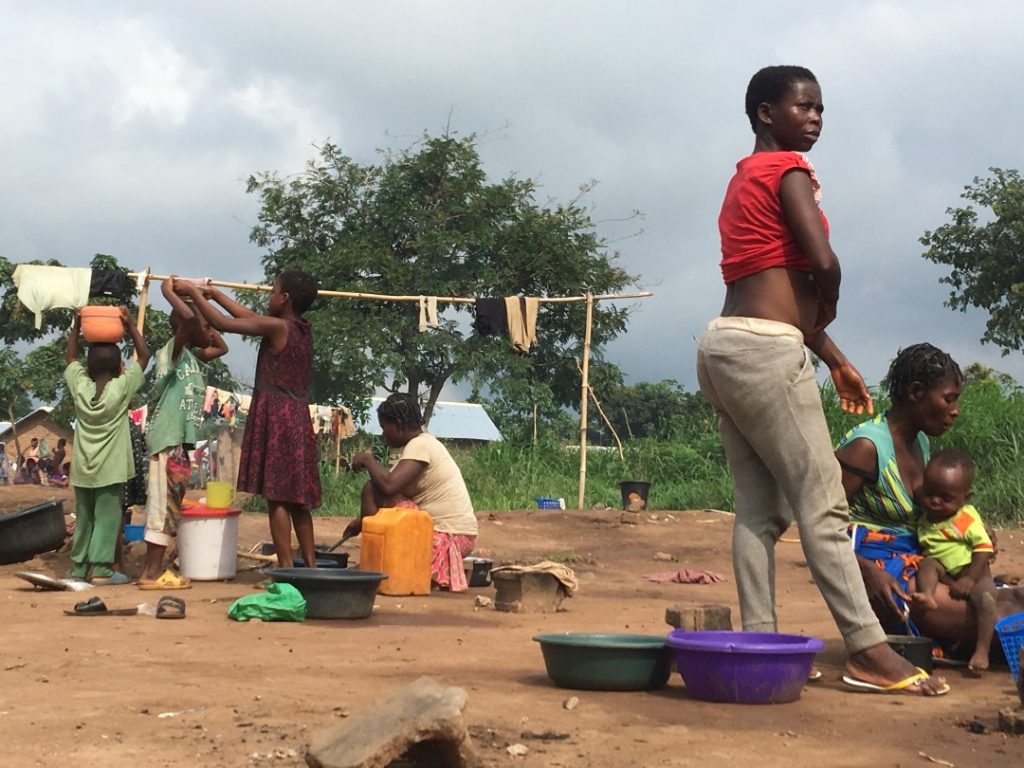
“There are times you go to the hospital and they will not even give you the required treatment and drugs. If you are sick they won’t give you the drugs completely. They can give you a drug and you have to go and buy others for yourself,” she told TheCable from her room at one end of Okende camp.
“When I went to the hospital, I was having malaria, from what they diagnosed and prescribed, they said it was just normal pain so they gave me pain relief and one injection. I was complaining of symptoms of malaria but they gave me drugs for pain. I had to go down to where my fiancé is who took me to the hospital and I was treated properly; I had tests and they gave me injections and drips.”
“When you go there as a refugee, the manner they will even attend to you… some Nigerians are very angry because they think since they are paying us N7,200, we are enjoying. They don’t know that it is nothing.”
‘FORGOTTEN REFUGEES’
The UNHCR estimates that 53 percent of the Cameroonian refugees in Nigeria live in host communities including Agbokim Waterfalls where Ujom is staying with more than 1,500 documented refugees and about 500 others yet to be documented.
After close to one hour on motorcycle, journeying through rocky and bushy paths, TheCable’s reporter finally arrived at Agbokim where the refugees complained they have been forgotten. Ujom, their leader, said despite being among the first Cameroonian refugees to arrive Nigeria in 2017, he has rarely received any form of aid.
“Between the time we arrived and now, UNHCR has brought food only three times, with the communities donating food to us often. Our population is about 2,000 but they returned in June after about a year of not coming here, with 11 bags of garri and beans,” he said.
“Three-quarter of the population here have been registered by UNHCR but UNHCR does not look after them. Some moved to the settlements but they still don’t receive anything; some of us from here keep going there but your name never appears.
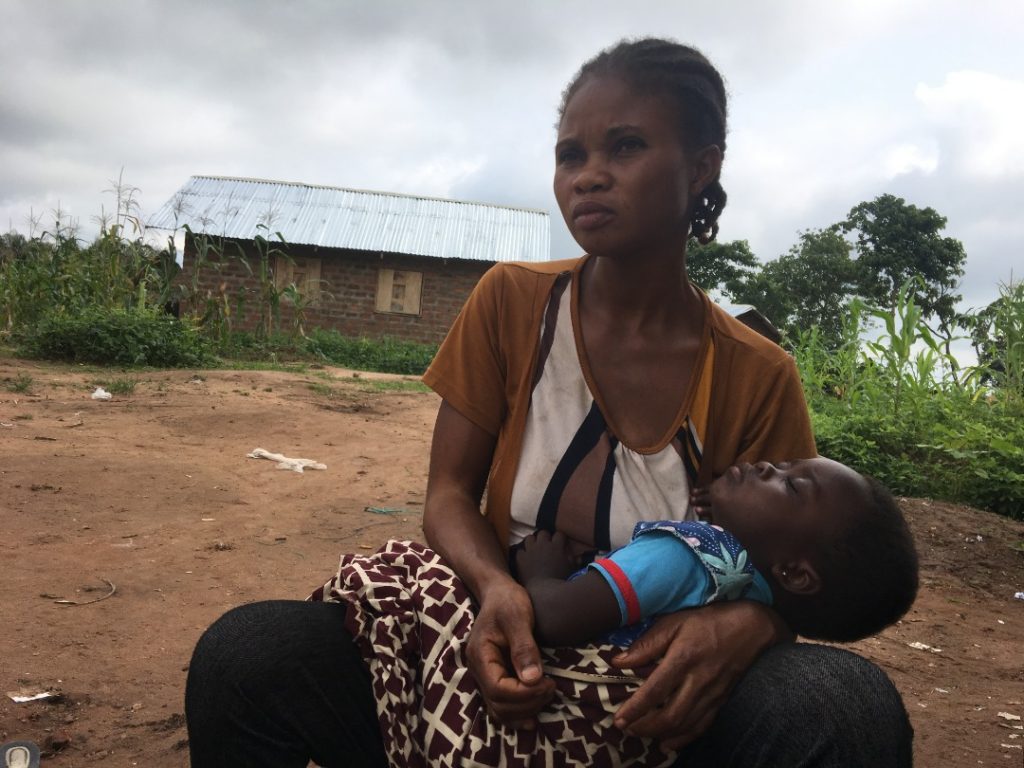
“They came from Switzerland together with those in Abuja and made it clear their relief assistance is not restricted to only to those in the settlement; they gave everybody the impression that they will come and meet us here. But it has never been the case.”
The aftermath of their frustration was a protest staged when UNHCR officials visited on June 20 to celebrate the World Refugee Day — it was after the protest that they visited with the bags of food, according to Ujom.
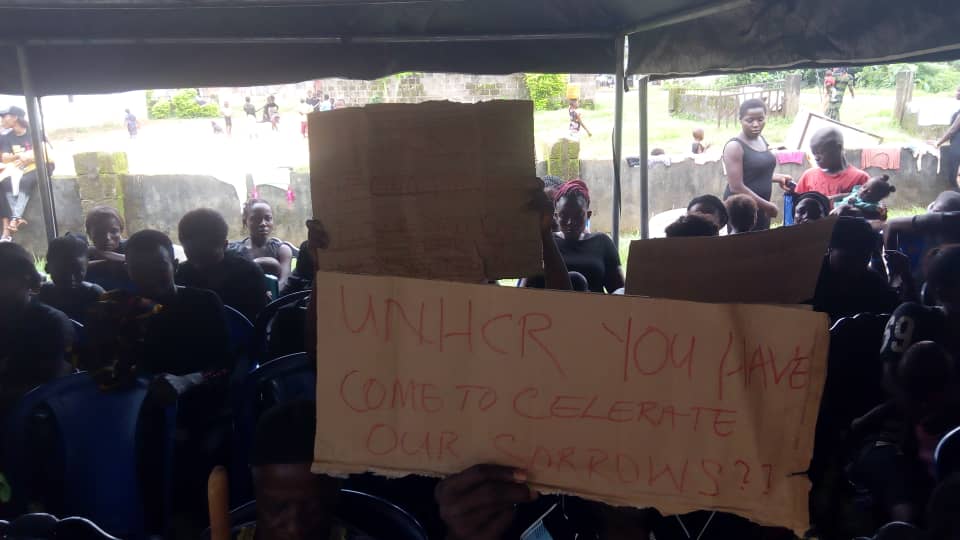
VIOLATION OF GLOBAL STANDARDS?
Over the years, there have been a lot of international laws and treaties adopted by various countries and assemblies to ensure the protection of rights of those caught up in humanitarian crisis like the case with Cameroon. But happenings in the refugee camps in Cross River calls to question whether the provisions of these laws have been met.
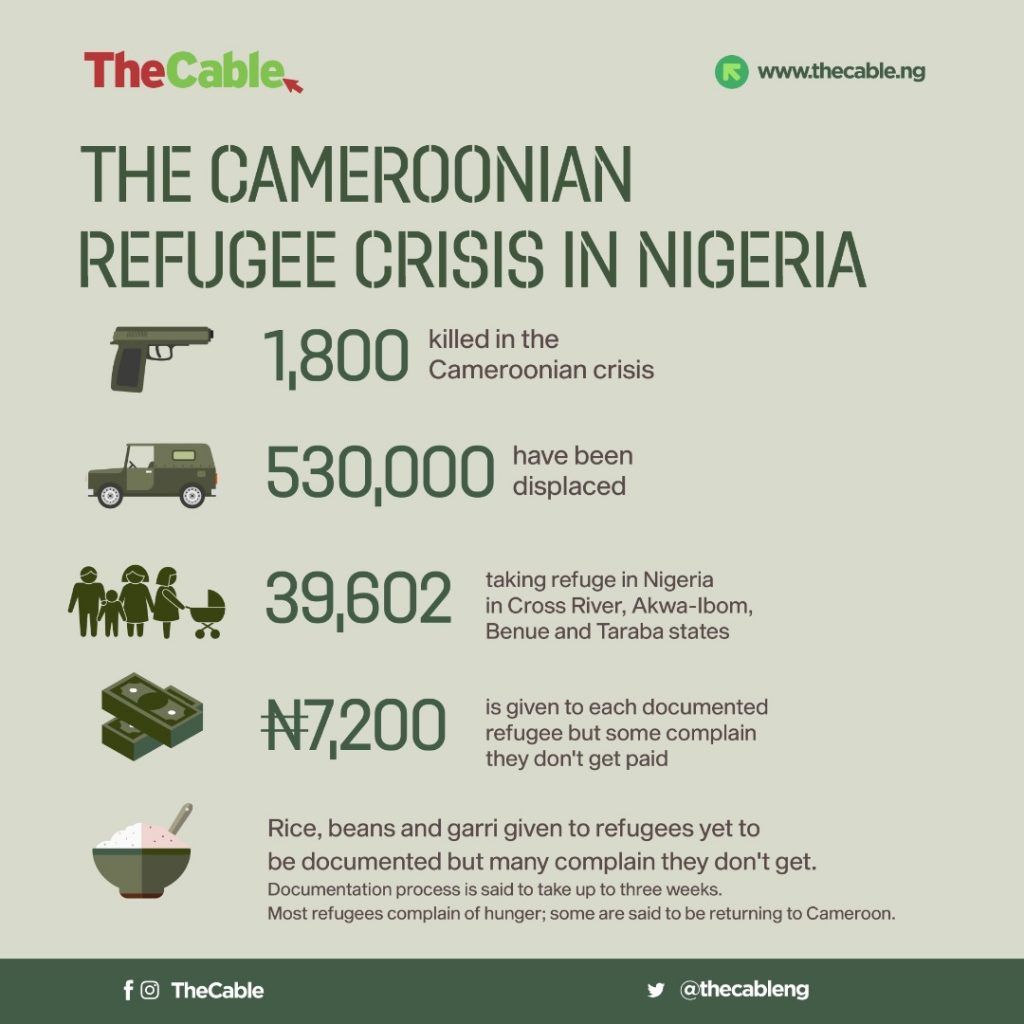
Some of them include:
- The Fourth Geneva Convention which is ratified by both Nigeria and Cameroon and recognises the vulnerability of refugees as aliens in occupied territories and the absence of protection by their state of nationality.
- The ECOWAS Humanitarian Policy which seeks to strengthen institutions for managing emergencies and responding to humanitarian challenges as well as promote protection of vulnerable persons during emergency situations.
- The AU Convention governing the specifc aspects of refugee problems in Africa which seeks protection of refugees and prohibits “discrimination as to race, religion, nationality, membership of a particular social group or political opinions.”
- The International Humanitarian Law which prohibits “starvation of the civilian population” and mandates parties to a conflict to “allow relief consignments to reach civilian populations in need.”
CAMP OFFICIALS DENY BAD LIVING CONDITIONS
Questions sent to Tony Aseh, reporting officer for UNHCR at its Ogoja office, over a period of three days were not responded even though he had promised to. However, in an interview with TheCable, the camp coordinator and an official with the state SEMA who simply gave his name as Andy said the refugees are being treated according to the laid down rules in humanitarian situations.
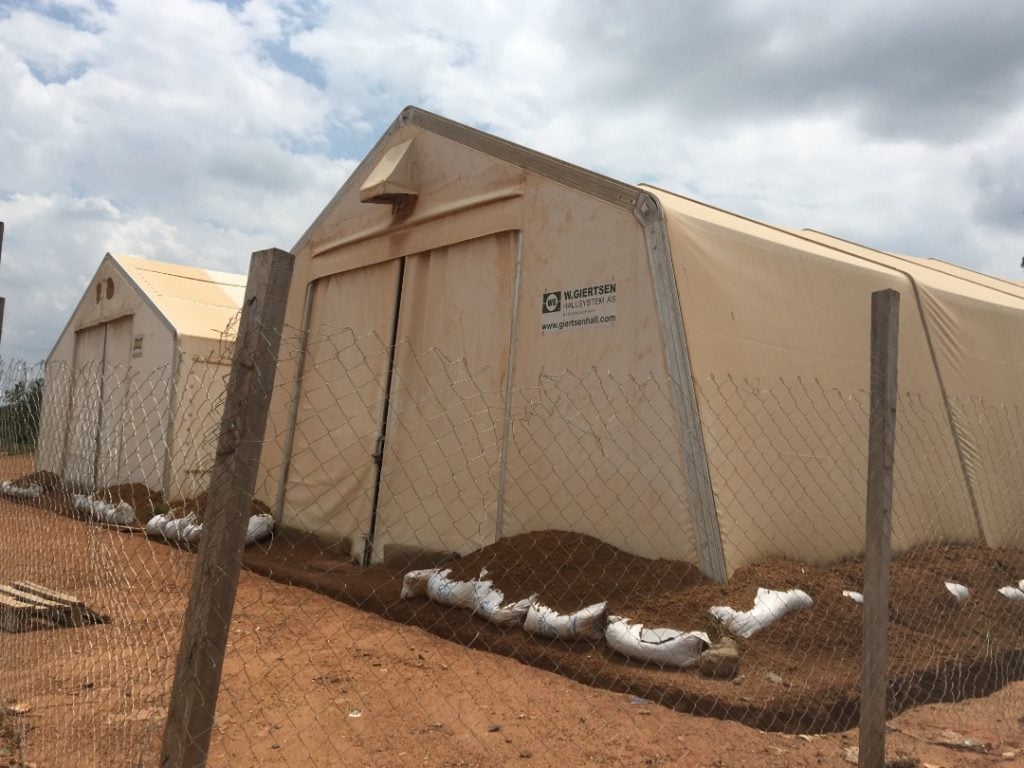
He said though there is not much funding to cater to all their needs — only four percent of the $184m UNHCR needs for its operations in Cameroon and Nigeria have been raised — efforts are underway to create more camps and empower more refugees with various skills.
He added that the refugees lamenting awere those residing in host communities and that all the documented refugees are being paid as at when due.
The official, popularly known as “Oga Andy” among the refugees, also denied that it takes a long time to document new refugees, saying “it does not take more than a week to register them.
“Anybody who you hear say they want to return is not a Cameroonian. Those are speculations, they are not refugees. The UN does not have all the money neither does Nigeria have.
“To be a refugee is not that you are a weakling. Some of them are working in different places. The ones complaining are those who wake up everyday and hold on to just the N7,200.”
But a lot of the refugees including Jane disagree with Andy’s position that life is fair even in the settlements.
“I don’t like this place but I don’t have a choice,” she said feebly. “I never knew I would be here till this time, now it is happening like a dream. All we are praying is for peace to return so that we can go back home. I don’t like this place.”

